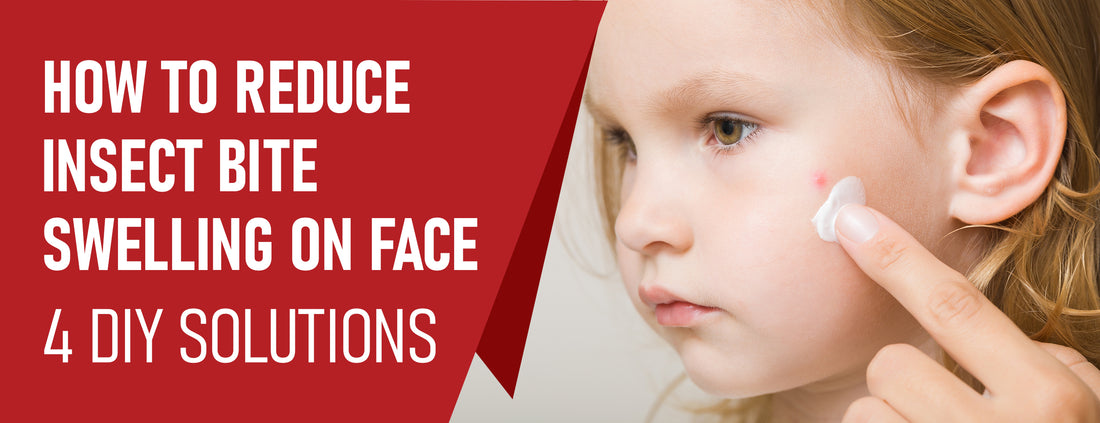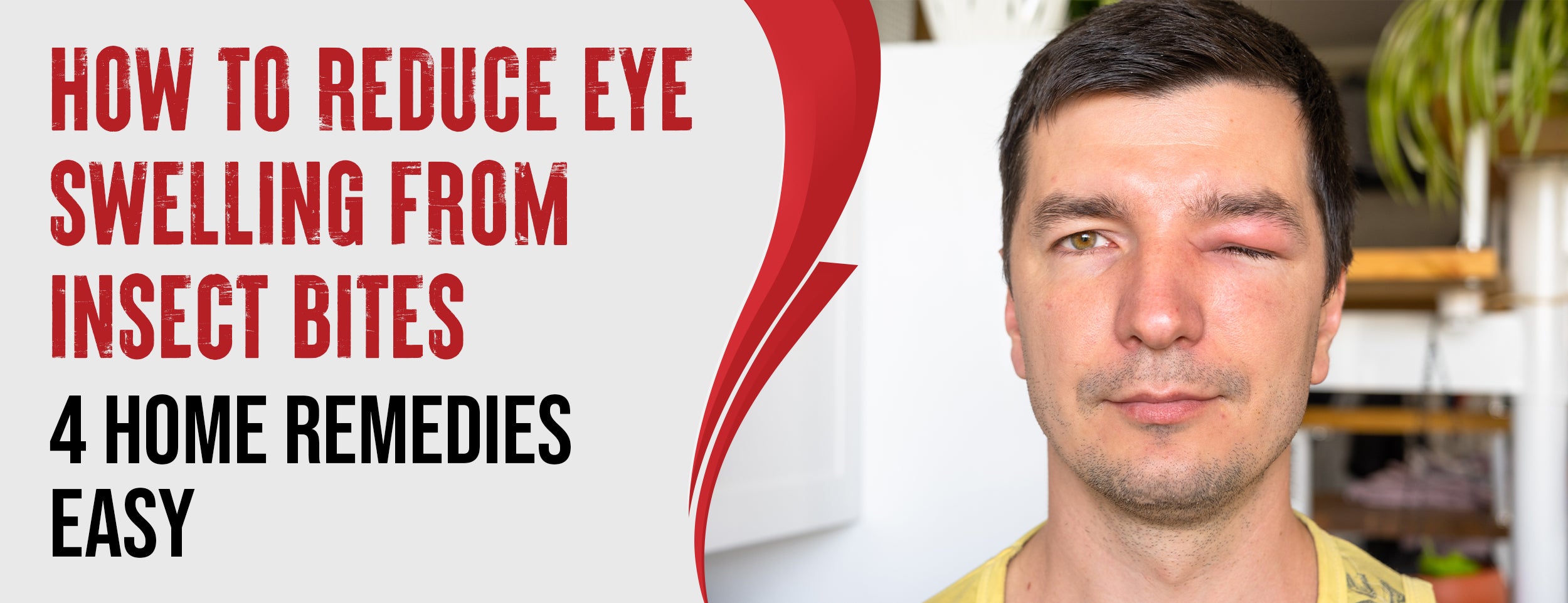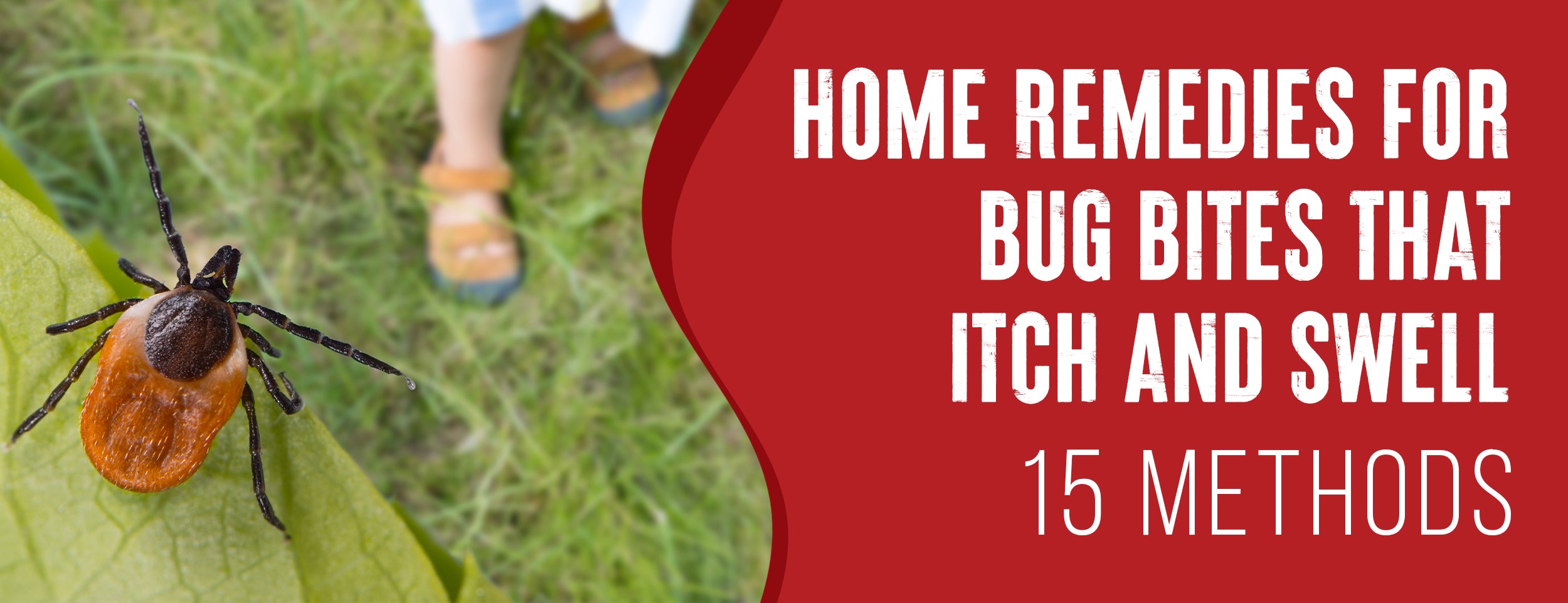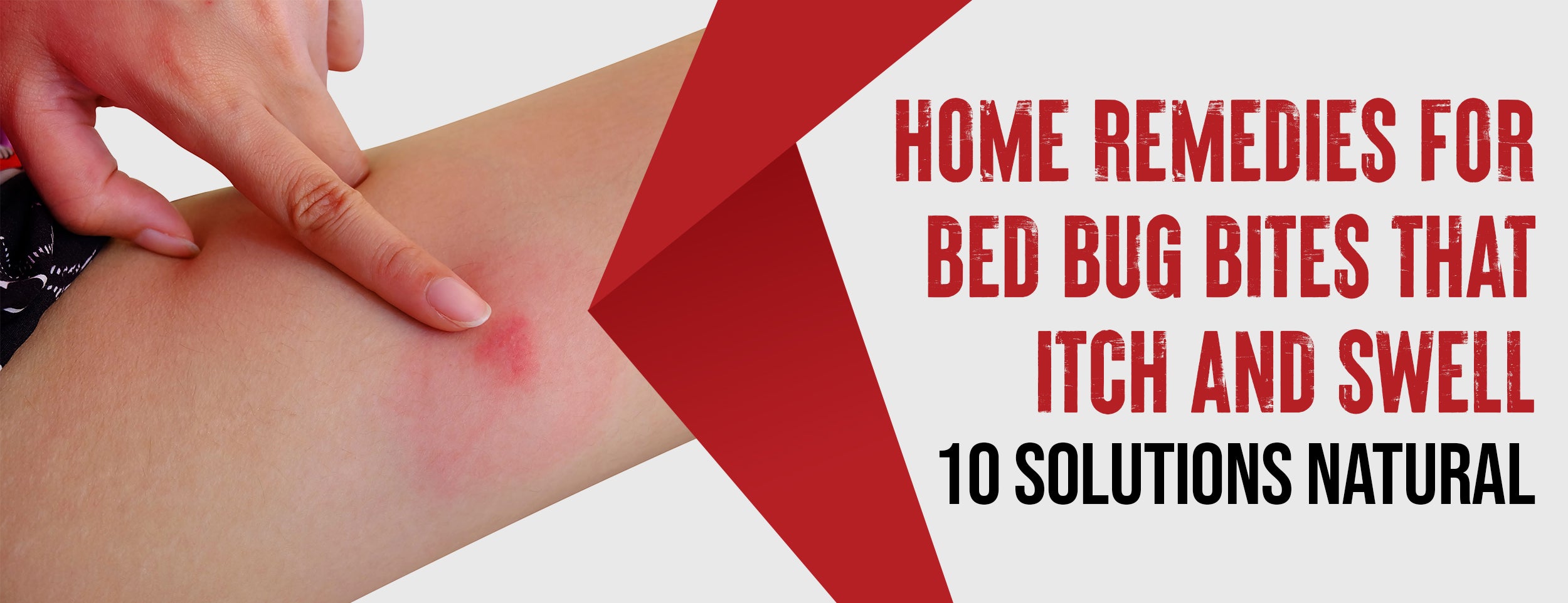Insect bites on the upper face can cause severe swelling around the eyes. There is no harm in this. The swelling usually worsens in the morning after lying down all night. Standing for a few hours will improve the situation.
Washing the affected area with soap and water is the first step to reducing swelling from insect bites. Ice packs can reduce swelling and itching for 10 minutes. To reduce the itch response, you can apply a solution of baking soda and water.
We will dive into the best preventative measures and treatments for insect bite swelling on the face.
How To Reduce Insect Bite Swelling On Face: DIY Treatments

A variety of treatments available can help reduce inflammation and swelling on the face. We'll cover some of the most effective treatments:
Over-the-Counter Treatments
One of the simplest and most accessible ways to reduce swelling caused by insect bites is through over-the-counter treatments. Here are some options to consider:
- Antihistamines: Antihistamines work by blocking histamines, the chemicals released by the body in response to an insect bite that causes swelling and itching, common over-the-counter antihistamines.
- Anti-inflammatory creams: These creams contain active ingredients such as hydrocortisone that help to reduce inflammation and swelling. Examples include cortisone cream and Calamine lotion.
- Pain relievers: Over-the-counter pain relievers like aspirin, naproxen, and ibuprofen can also relieve pain associated with insect bites.
Natural Remedies
If you prefer a more natural approach to insect bite treatment, there are several remedies that you can try. Remember that only some of these remedies have been scientifically proven effective. Here are some natural remedies that could help reduce swelling:
- Aloe vera gel: Aloe vera gel is anti-inflammatory by nature. The application of aloe vera gel can reduce swelling and alleviate discomfort.
- Tea tree oil: It is antibacterial and can be used to treat insect bites. You can mix olive oil and tea tree oil and apply it to the injury.
- Baking soda: Baking soda is antiseptic and anti-inflammatory, reducing swelling and preventing infection. Make a paste of baking soda and water, then apply the paste to the affected area.

Cold Compresses and Other Home Remedies
Cold compresses are a tried-and-true remedy for reducing swelling caused by insect bites. Cold compresses reduce inflammation and relieve pain. Here are some other home remedies to consider:
- Increasing elevation can reduce swelling.
- Applying a mixture of water and vinegar can help to reduce itching and inflammation.
- The antibacterial properties of honey prevent infection and speed up healing.
Prescription Medications
If your swelling is severe or you have difficulty breathing, seek medical attention. Sometimes, prescription medications may be necessary to treat insect bite swelling. Here's an overview of some common prescription treatments:
- Epinephrine: In severe cases of insect bite swelling, epinephrine may be administered to help reduce swelling and improve breathing.
- Steroid medications: Drugs like prednisone may be prescribed to help reduce inflammation and swelling.
- Antihistamines: Sometimes, your doctor may prescribe a more vital antihistamine medication to help alleviate itching and reduce swelling.
Reduce Swelling From Insect Bites: When Seek Medical Care

Insect bites can be irritating and uncomfortable, especially on the face. In some cases, insect bites can cause swelling, which can cause concern. Understanding when a swollen insect bite on the face requires medical attention is essential.
Identifying Insect Bite Infections
An insect bite can become infected if bacteria enter the wound. Recognizing the signs of infection at the site of an insect bite is essential. Seek medical attention if you experience the following symptoms:
- Swelling and redness surrounding the bite become increasingly worse over time.
- Pus or discharge from the bite.
- Pain and tenderness in the affected area.
- Fever and chills.
Allergic Reactions and Identifying Them
An insect sting or bite can trigger an allergic reaction in some individuals. Mild to severe allergic reactions can be life-threatening in some cases. You must diagnose an allergic reaction immediately if you notice any of the following symptoms:
- Hives or rash.
- Swelling of the face, lips, or tongue.
- Difficulty breathing or wheezing.
- Rapid heartbeat or drop in blood pressure.
- Nausea or vomiting.
Prevention Of Insect Bite Swelling On Face

Insect bites on the face can be particularly distressing, as they can cause swelling, redness, itching, and even infection. It is possible to reduce the chances of being bitten on the face by insects. Here are some effective preventative measures that you can follow:
Wearing Protective Clothing
Wearing clothing that covers your skin, especially in the summer or in areas where insects are common, can help prevent insect bites on the face and other body parts.
Clothing should be loose-fitting, light-colored, and breathable fabrics like cotton or linen. Here are some types of clothing that you can wear to protect your face and body:
- Long-sleeved shirts and pants.
- Wide-brimmed hats.
- Sunglasses.
- Closed-toe shoes or boots.
- Mosquito nets or scree.
Avoiding Heavily Wooded Areas
Insects like mosquitoes, ticks, and flies like to live in areas with trees, bushes, and grasses. Stagnant water in these areas acts as a breeding ground for mosquitoes. Avoiding wooded areas where insects breed and thrive can help you avoid bites. If you must go to these areas, try to stay on the trails or paths with fewer insects.
Using Insect Repellents and Natural Remedies
Insect repellents can be an effective way of deterring mosquitoes and other insects from biting you. You can choose from several types of insect repellents, including those that contain DEET, picaridin, or IR3535.
The essential oils of citronella, lemon eucalyptus, or lavender can be used. When applying insect repellents, follow the instructions on the label and reapply as needed.
Best Practices for Avoiding The Bites of Bees or Wasps
Bees and wasps can sting when they feel threatened or disturbed. Their stings can be excruciating, leading to swelling, itching, and even an allergic reaction. Here are some best practices for avoiding their bites:
- Refrain from wearing bright colors and floral patterns, which can attract bees and wasps.
- Avoid using perfumes and scented products as they attract bees and wasps.
- Do not approach or touch a bee or wasp's nest or hive.
- Stay calm and move away slowly if you see a bee or wasp. Avoid swatting or running, as this can aggravate and provoke them to sting.

Avoiding Scratching or Irritating The Bite Area
Unfortunately, you must avoid scratching or rubbing the bite area if you get bitten. Scratching can lead to further swelling, itching, and redness. Instead, try to do the following:
- The bite area should be washed with soap and water.
- Cold compresses and ice packs reduce swelling.
- Skin-soothing creams and lotions reduce inflammation and discomfort.
- Take an antihistamine or a painkiller if needed.
Conclusion
Insect bite swelling is a frustrating and uncomfortable experience, but there are many ways to reduce the symptoms and take control of the situation. By following preventative measures like wearing protective clothing and using insect repellents, you can reduce your risk of getting bitten in the first place.
If you experience swelling from an insect bite on your face, many treatments are available, from over-the-counter creams to natural remedies and cold compresses.
Swelling that becomes severe, or signs of infection or allergies require medical attention. With this guide, you'll easily manage insect bite swelling on your face and enjoy the great outdoors without worry.











